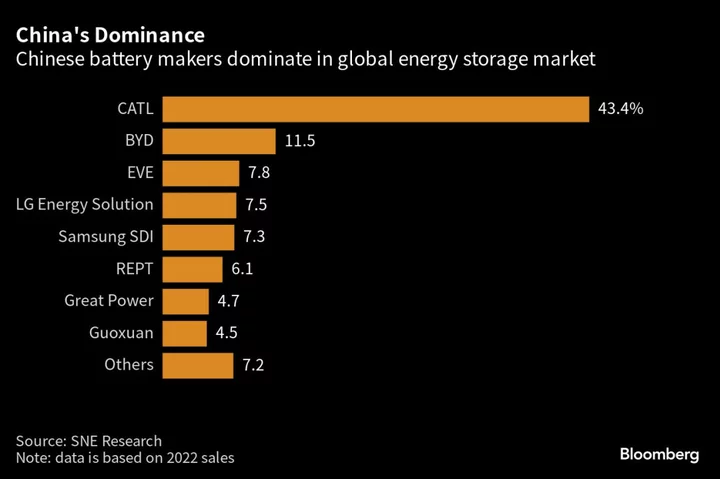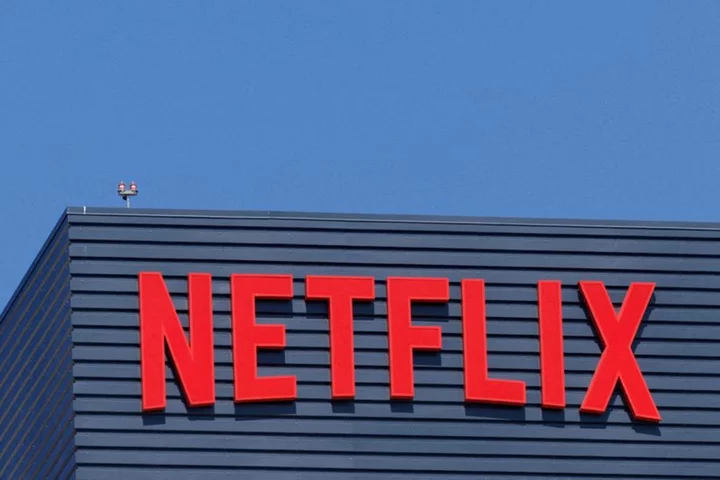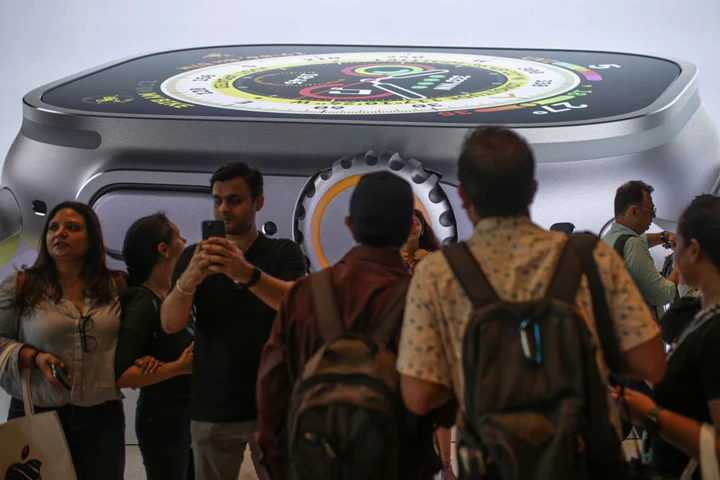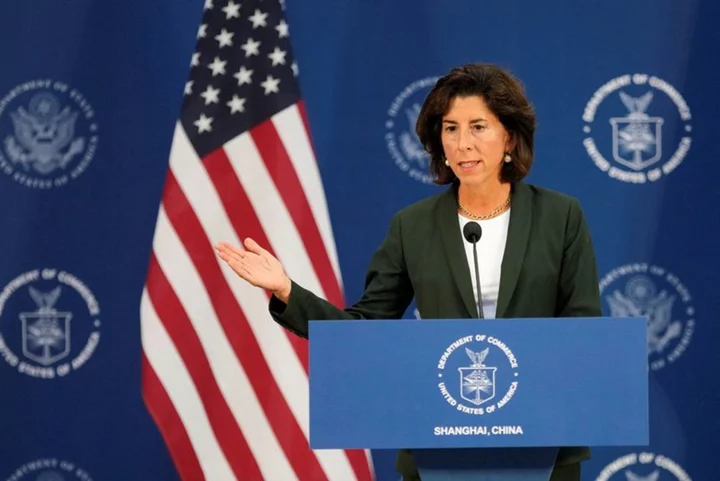South Korean battery maker LG Energy Solution Ltd. is considering an expansion of its production in the US in a bid to triple sales from energy storage systems, according to a senior executive.
LG is reviewing further investment in the US, after unveiling a $2.3 billion spending plan in March to produce grid-scale batteries for storage in Arizona, said Chang Seungse, who leads the company’s ESS business. North America will account for up to 70% of LG’s ESS sales by 2030, helping triple its total revenue from the sector in the next five years, he said.
Chang declined to give any details on the additional investment in the US.
The Korean manufacturer’s foray in the US underscores its effort to fend off Chinese producers and regain clout in the energy storage sector. The company will focus on supplying higher-end storage systems in North America, specializing in premium products and will benefit from the tax credits doled out by US President Joe Biden’s Inflation Reduction Act, Chang said.
“It would be hard for Chinese suppliers to compete directly with us in the US,” he said in an interview before heading to Las Vegas for RE+ 2023, an industry trade fair. “It’s not in our plan to play a market-share game with China.”
The expansion plans come after a spate of fires between 2017 and 2019 at energy storage sites in South Korea sapped the sector’s growth in the country, and prompted stricter government regulations. Safety is considered one of the key factors hampering Korea’s efforts to decarbonize its power grid.
As South Korean ESS battery manufacturers grappled with safety concerns, their biggest rivals in China seized more of the global market. Contemporary Amperex Technology Co. and Eve Energy Co. have both seen their shares rising to around 43% and 7.8%, respectively, while LG’s share plunged to 7.5% last year from almost 18% in 2021, according to a report from Seoul-based SNE Research.
Soaring domestic demand in China has also benefited Chinese producers. The global ESS market is forecast to record a 23% compound annual growth rate, with China overtaking the US as the largest energy storage market by 2030, according to a report from BloombergNEF.
LG is looking to use its expertise in EV batteries — it’s a supplier to global automakers including Tesla Inc. and General Motors Co. — in the ESS market. The company will accelerate its development and production of batteries based on lithium-iron-phosphate, or LFP, that are relatively safer and cheaper than nickel-cobalt-manganese cells conventionally used in storage systems, Chang said.
“LFP will remain the dominant battery storage chemistry for the stationary storage market until 2030, making up 65% of the ESS battery storage chemistry mix in 2030,” said Helen Kou, a BloombergNEF analyst. “It is essential for LG ESS to invest in LFP technology to compete with its battery provider peers.”
Read More: Korea’s Battery Makers Embrace LFP Cells as China Strides Ahead
LG is also looking beyond the battery manufacturing segment, Chang said. The company will hire more software engineers to help operate massive energy storage systems. Having more advanced and integrated software capabilities is critical to ensure battery safety, as well as creating new revenue streams, he said.
Chang, a former consultant who turned 50 this year, signed major supply deals with European carmakers such as Volkswagen AG, which led to the construction of the region’s biggest battery plant in Poland, before becoming LG’s head of ESS last year.
“The competition will only get tougher with China,” he said. “We’ll only win this game if we can differentiate ourselves by becoming an all-round solutions provider who offers not just reliable and safe batteries, but also the entire software system.”









